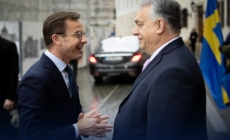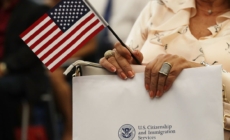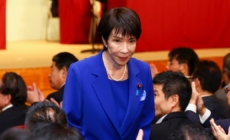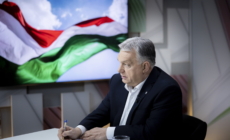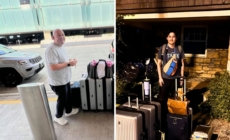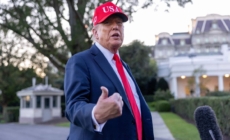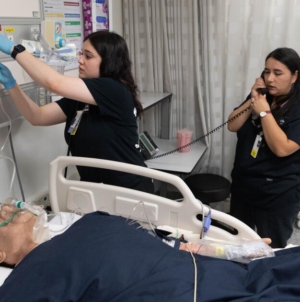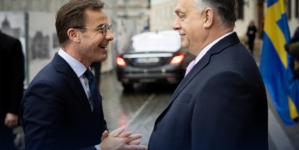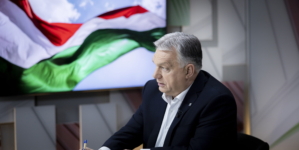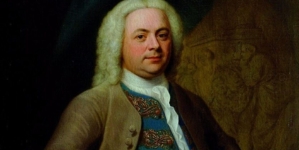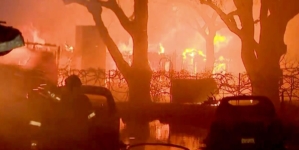Unfulfilled Legacy? Nelson Mandela is still seen as a hero in the West, as well as in South Africa.
During the Danube Institute’s 5th Geopolitical Summit in Budapest we had the honor of meeting one of the most courageous and outspoken defenders of human rights, critics of corruption and discrimination in South Africa since Nelson Mandela. He is white though. His name is Ernst Roets.
Welcome to Hungary. At home you are in a serious battle for the future of South Africa and for the rights of the white minority there. From what you hear and see in Hungary, what do you take back home that is relevant to your cause, that you would like to apply there?
I came here for the first time in 2021. I was just blown away by the similarities between the Afrikaner and Hungarian people. The cultural similarities, in terms of how we think about little things like food, etc., but also our approach to religion – when much of Europe has become secular, Hungarians tend to be more religious. Furthermore, when we watch Hungary in the context of its struggles with the European Union, and you compare it to the Afrikaners and our struggle with the South African government, then these similarities become even clearer.
We find a lot of inspiration from what Hungary is doing, as Hungary and Budapest are becoming the conservative capital of the world.
I do not know whether this is a deliberate project but people increasingly see it that way. Hungary’s resolve in the interest of its own people is really inspirational.
Part of the Hungarian story that resonated with us is that it is by no means an imperialistic project. Not a project that goes out to conquer other nations, and it has never been that. It does not want other nations to become Hungarians. Instead, it wants to protect what belongs to Hungary. That to me is really the essence of conservatism. That is why the Hungarian story touches us.
Ernst Roets at the Danube Institute Geopolitical Summit, Budapest. Photo: Hungary Today
When you look at Europe, do you detect a certain “South-Africanization” of our continent? The rise of parallel societies, interracial violence, the bankruptcy of the concept of multiculturalism, and the separation of the public and political sphere by cultural or racial clans?
Yes, it started as a joke, but it is not really a joke any longer. It is much more serious than that. The joke was that other countries in the West, such as Canada and the U.S., have been going through a process of “South-Africanization”. Perhaps it is not so incidental that that is happening, because in the 1990s, when the South African political system that we know today was established, the argument by the United Nations and other international actors was that the (post-apartheid, ed. note) South African model is the model that should be follow by the rest of the world.
This is a new world-order type model that says that everyone is just the same even though people have different cultures and languages. Hence we can bring them all together under a “big umbrella”, which is globalist model. South Africa is in a way one of the most important globalist experiments in the world, because it was so deliberate, and because it was so much celebrated. There were high hopes for this. However, there is a clear recognition that
to the extent which South Africa is now failing, the globalist project is failing with it.

(L to R) Gergely Dobozi, Zoltán Kovács, Curtis Yarvin, Eugen Kontorovich, Ernst Roets, Stefano Gennarini. Danube Institute 5th Geopolitical Summit, Budapest. Photo: Hungary Today
Does this apply to Europe as well?
Yes, we absolutely see that happening in Europe. The reluctance of European leaders to take a stance against mass migration, to recognize that there is something unique about their own culture, nations, their own languages, and that this has to be protected. Also the strange belief that when you try to protect that what is rightfully yours then you are somehow a bigot or an authoritarian. When people become engulfed by waves of immigration or just by the changing demographics, they have nothing to say about that. It would not be acceptable or politically correct.
Political correctness has done a lot of damage in Europe, and that because unfortunately a certain standard has been set for what constitutes acceptable political speech and what does not. That standard was very much shaped by the ideas of what the world would be after the fall of the Berlin wall. But the world never turned out to be like that.
In South Africa the extreme version is that we have more than 140 race laws, all of them are aimed at discriminating against white people, and white males in particular. We increasingly see traces of that in Europe, Western Europe in particular.
We have the hate speech in South Africa, which is really extreme, calling for the killing of the Boer people chanted by politicians. All the while they are protected by the justice system. We see traces of that happening in Europe.
Except here is the anomaly that those South African discriminatory laws are conceived by black politicians against whites, while in the EU they are brought by whites against whites…
Yes, in that sense it is worse in Europe. My home country is very diverse, it is a big territory inhabited by a variety of ethnic groups. The problem is that some groups are trying to dominate others.
In Europe it is slightly different.
It is a form of suicide that is happening in Europe.
Some European leaders are trying to implement laws that are so obviously to their own detriment. But because they are politically correct, they are still going to be applauded for that.
I have met former president Frederik de Klerk in 2013, and as I was listening to this man it was already clear that neither his, nor Mandela’s ideals of a peaceful coexistence were, nor will be realized in South Africa in the near future. What went wrong? What could have been done differently by white South Africans in particular at the end of the Apartheid to protect their own rights?
I feel very strong about this. That is why we started the new initiative called Lex Libertas. The problem in South Africa is the political system which might appear to be robust in theory, with its constitution and so forth, yet it is built on certain assumptions about human nature that turned out to be false. Everyone is not just the same, a country is not just a collection of people. It is people within the context of a community. The South African constitution does not recognize that, it says that there were injustices in the past and those need to be corrected. But the solution put forth, in theory at least, is a very liberal solution that only recognizes individual rights. It does not recognize group dynamics.
Hence the problem is that the system is also highly centralized, it does not speak to the reality on ground level. South Africa is very large, diverse, and it is also very poor. It has a liberal democratic system that recognizes people only as individuals. Just one of the consequences of the country being so poor is when you do not have a job, did not finish school, and you have to go to an election, can you really blame someone like that for voting for socialism? When one party comes along and says: “vote for us and we are going to implement policies that will promote market freedoms, where you can get a job, where you can uplift and develop yourself and eventually grow in your career”, while then the other party just comes and tells them that “we will give you money” – these people will vote for the second option. This is how people end up voting for parties that offer destructive policies with short-term gains. All this is part of the consequences of a highly centralized system in South Africa.
The African National Congress’ (ANC) hegemony is coming to an end, what will this mean for white South Africans? It seems there are only bad options and scenarios awaiting them.
Right, the people are happy about the fall of the ANC, which is happening as we speak. They have lost a lot of support in the last election, they went from almost 60% to 40%, and there are indications that their support has dropped closer to 30%. They are certainly on their way down.
Yet there are radical groups in South Africa. Some left of the ANC, such as the Economic Freedom Fighters of Julius Malema, or another new radical party, the uMkhonto weSizwe Party (MK Party) of our former leader, Jacob Zuma. They are a black nationalistic movement combined with socialist ideas. Hence we are expecting some form of a constitutional change, not just a change in government.
Change is coming for sure, that question is what would that look like.
That is why we are saying that the more centralized the system becomes in a diverse land like South Africa, the worse it is going to be for the country, and the more decentralized it is, the better. The good thing about a decentralized system is that the burden is more on you and your communities than it is on the failing state.
It is difficult to conceive of the ANC winning the next elections, there is talk that Cyril Ramaphosa is the last ANC president. That is good news in terms of the ANC collapsing, but the question is what is going to fill the void.

(L to R) Gergely Dobozi, Zoltán Kovács, Curtis Yarvin, Eugen Kontorovich, Ernst Roets, Stefano Gennarini. Danube Institute 5th Geopolitical Summit, Budapest. Photo: Hungary Today
Today is the 10th anniversary of the battle of Röszke. Hungary is defending its borders and is resisting EU attempts to force them to create a multi-ethnic society where historic rights, cultural identity of the native population mean nothing. Yet despite the horrors that have happened in Europe in the past decade, terror, crime, rape, Hungarians are still unable to swing the majority of European public opinion to their side, just like South African whites are unable to mobilize the democratic West to confront their plight, suffering, oppression. We need to change our strategy, what can we do differently?
The most important part of the question is the very long-term view. And that is that we need to have more children. It is about ensuring that your nation and your community has a future, that we stop this population decline. The extent to which your voice is heard is often not determined only by the content of your message but by factors surrounding the message. Including the size of the group, what the Soviets called, the “balance of forces”. You can have a fantastic argument, but if you are insignificant, your argument will not be heard.
The risk of being insignificant and wanting to be heard is that you have to take desperate measures. And people try to do desperate things to insure that their voices are heard. That often makes thing worse.
The medium-term answer is to have stronger institutions. That is why in South Africa we are big fans of Alexis Tocqueville, who wrote “Democracy in America” in the 1830s, because he observed that America will become a stronger nation due to its institutions. In the 1830, if a community needed a school, they did not ask the central government to build them one, they just built it themselves. An institution could be many things: it could be a social club, a think tank, a church or university. Hence I do not see the Afrikaner people in South Africa, or Westerners in general, ensuring their own future unless we have strong institutions.
Related article
“Hungary’s Voice is Respected,” Says Acting U.S. Ambassador Robert Palladino in Exclusive Interview

Let us take advantage of the golden era between our countries, says American diplomat.Continue reading
Featured Image: Pixabay
The post “South Africans Find Inspiration in Hungary”, Says Ernst Roets in Our Interview appeared first on Hungary Today.
Source link


